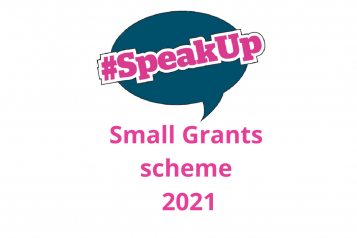CQC publishes the findings of their Maternity Services survey
The Care Quality Commission carried out a national survey of more than 17,600 women who gave birth in February last year.

The findings of the CQC survey show that many women had a good experience, particularly in relation to interactions with staff, access to midwives and emotional support during pregnancy.
However, for some women the care they received fell short of expectations with issues highlighted around continuity of care, choice in antenatal and postnatal services and access to help, information and support after giving birth.
Some notable findings from the report nationally are as follows:
- Most women (82%) said that during their antenatal check-ups the midwives they saw ‘always’ listened to them (unchanged from 2017, but up from 79% in 2013 and 2015) and more women in 2018 (68%) said they were asked how they felt emotionally during their antenatal care (up from 64% in 2017 and 57% in 2015).
- 88% of women surveyed said that they were ‘always’ treated with respect and dignity during labour and birth (the same as in 2017, but slightly up from 86% who said this in 2015 and 85% in 2013).
- More women in the 2018 survey (71%) said their partner or someone else close to them could stay with them as much as they wanted during their stay in hospital (69% in 2017 and 63% in 2015).
- In 2018, more than nine in ten women (97%) said that during their pregnancy they had a telephone number for a midwife or midwifery team that they could contact. Of those who tried to contact a midwife during their pregnancy, just under three-quarters (73%) ‘always’ got the help that they needed. These results have remained stable over time.
- Over two-thirds of women (68%) in 2018 said they were not given a choice about where their antenatal check-ups would take place, however, this proportion has declined gradually over time (from 71% in 2013 and 69% in 2015 and 2017).
- Over three-quarters of women (77%) reported that they were never left alone during the birth of their baby at a time when it worried them. This is unchanged from 2017 but has improved from 74% in 2013 and 2015.
- Over a quarter of women (28%) said they did not see the same midwife for their antenatal checks but would have liked to, and only 15% said that the midwives who cared for them during labour and birth had been involved in their antenatal care; the same as in 2017.
- In 2018, fewer women felt that they were ‘definitely’ given enough information about their own physical recovery (57% in 2017 falling to 53% in 2018) or about any emotional changes they might experience (59% in 2017 and 56% in 2018) after the birth.
- Almost a quarter (24%) of women surveyed said the midwife or midwives that visited them at home did not appear to be aware of their medical history; compared to 23% in 2017 and 22% in 2015.
- The proportion of women who said they would have liked to have seen a midwife ‘more often’ after they went home has also slightly increased – 23% said this in 2018 compared with 21% in 2017.


